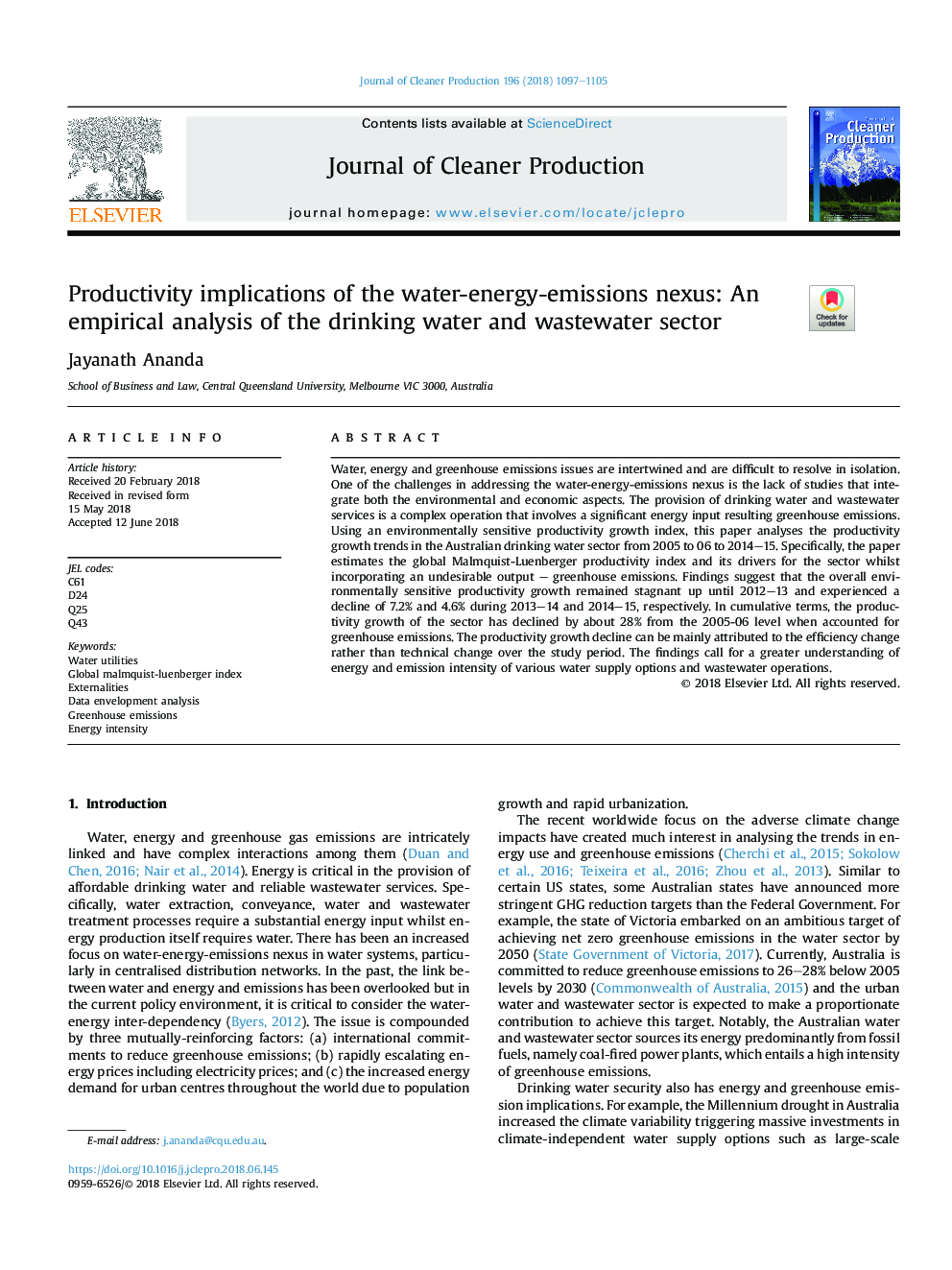| کد مقاله | کد نشریه | سال انتشار | مقاله انگلیسی | نسخه تمام متن |
|---|---|---|---|---|
| 8094086 | 1522057 | 2018 | 9 صفحه PDF | دانلود رایگان |
عنوان انگلیسی مقاله ISI
Productivity implications of the water-energy-emissions nexus: An empirical analysis of the drinking water and wastewater sector
ترجمه فارسی عنوان
پیامدهای بهره وری از آب و انرژی ناسازگاری: تجزیه و تحلیل تجربی از بخش آب آشامیدنی و فاضلاب
دانلود مقاله + سفارش ترجمه
دانلود مقاله ISI انگلیسی
رایگان برای ایرانیان
کلمات کلیدی
موضوعات مرتبط
مهندسی و علوم پایه
مهندسی انرژی
انرژی های تجدید پذیر، توسعه پایدار و محیط زیست
چکیده انگلیسی
Water, energy and greenhouse emissions issues are intertwined and are difficult to resolve in isolation. One of the challenges in addressing the water-energy-emissions nexus is the lack of studies that integrate both the environmental and economic aspects. The provision of drinking water and wastewater services is a complex operation that involves a significant energy input resulting greenhouse emissions. Using an environmentally sensitive productivity growth index, this paper analyses the productivity growth trends in the Australian drinking water sector from 2005 to 06 to 2014-15. Specifically, the paper estimates the global Malmquist-Luenberger productivity index and its drivers for the sector whilst incorporating an undesirable output - greenhouse emissions. Findings suggest that the overall environmentally sensitive productivity growth remained stagnant up until 2012-13 and experienced a decline of 7.2% and 4.6% during 2013-14 and 2014-15, respectively. In cumulative terms, the productivity growth of the sector has declined by about 28% from the 2005-06 level when accounted for greenhouse emissions. The productivity growth decline can be mainly attributed to the efficiency change rather than technical change over the study period. The findings call for a greater understanding of energy and emission intensity of various water supply options and wastewater operations.
ناشر
Database: Elsevier - ScienceDirect (ساینس دایرکت)
Journal: Journal of Cleaner Production - Volume 196, 20 September 2018, Pages 1097-1105
Journal: Journal of Cleaner Production - Volume 196, 20 September 2018, Pages 1097-1105
نویسندگان
Jayanath Ananda,
